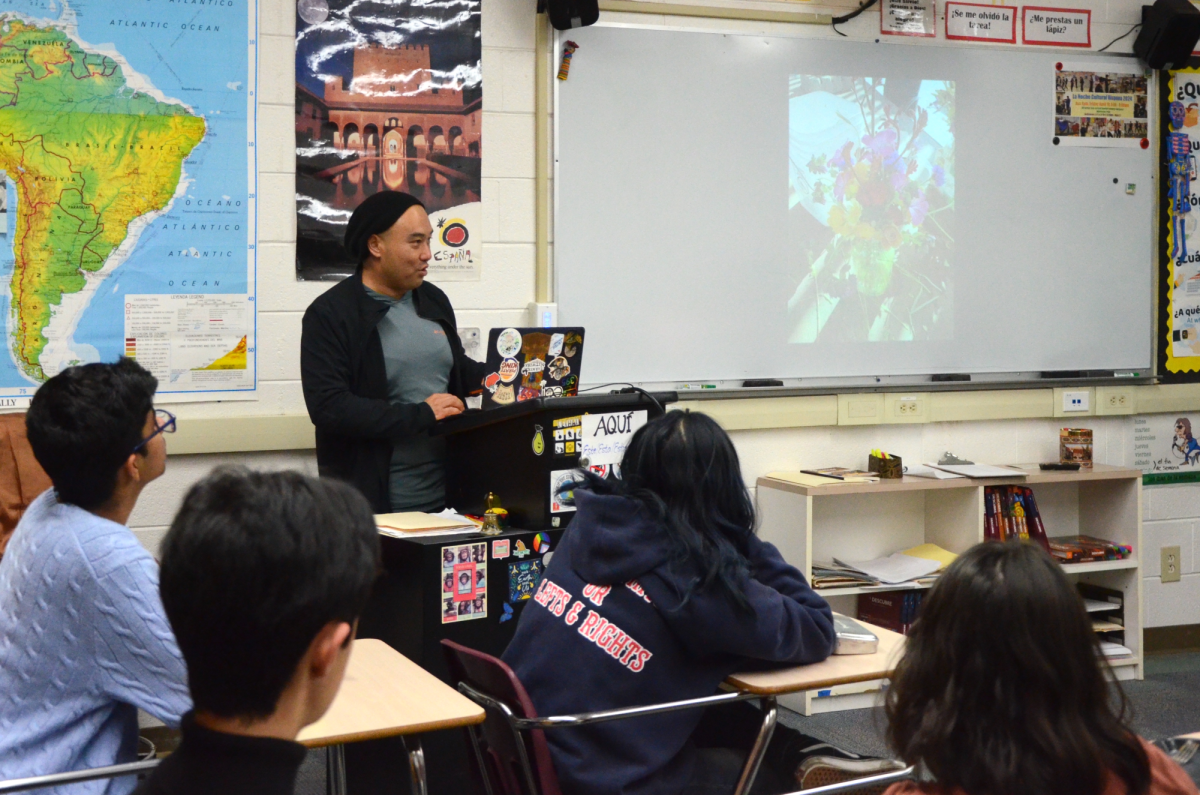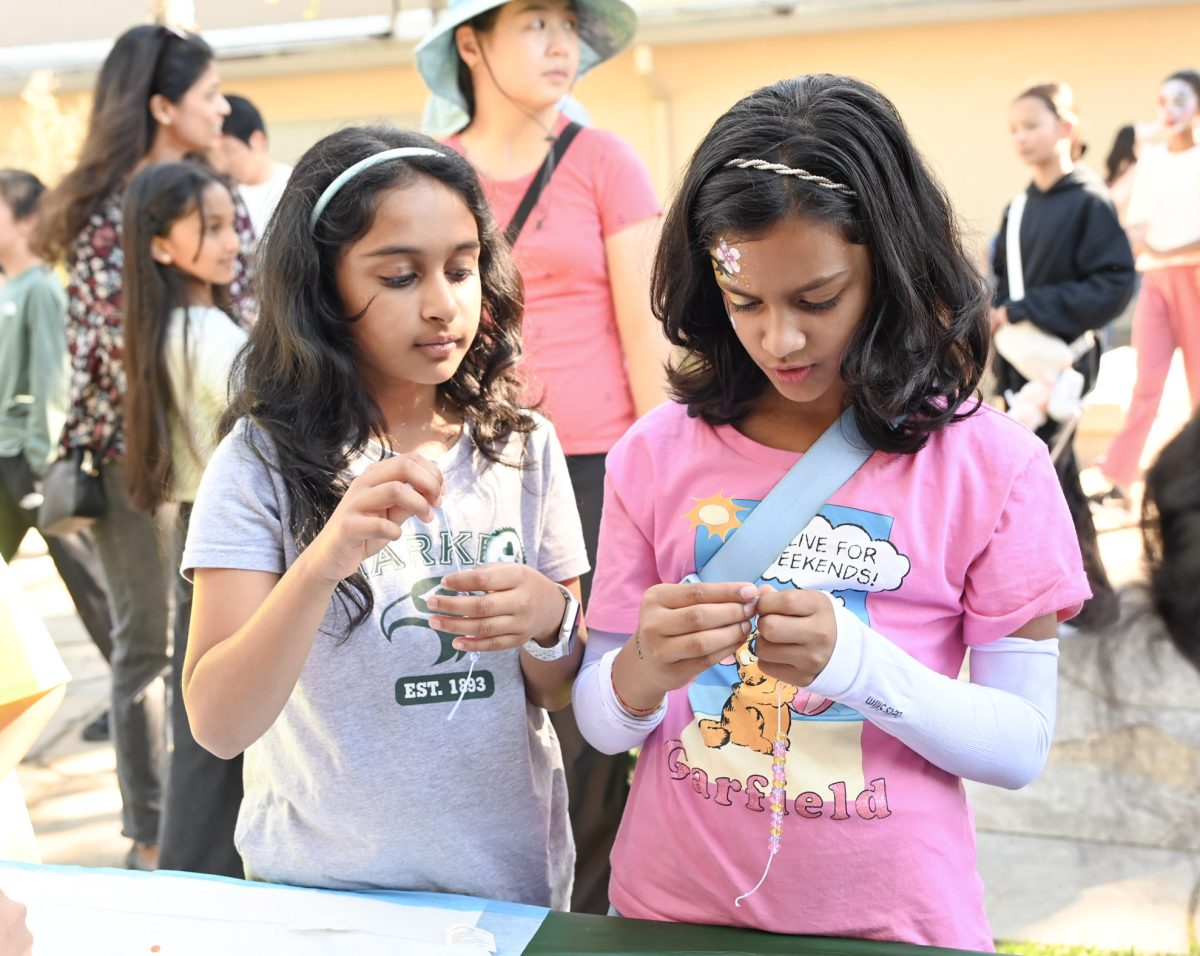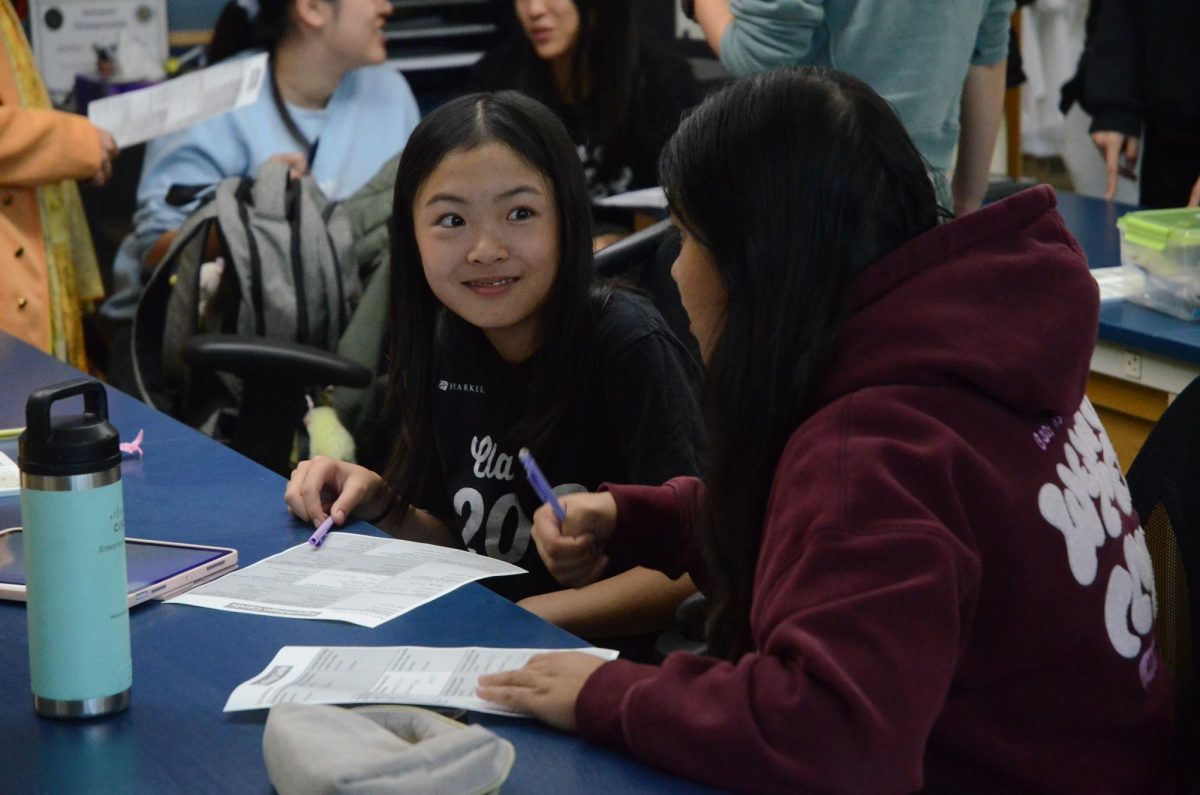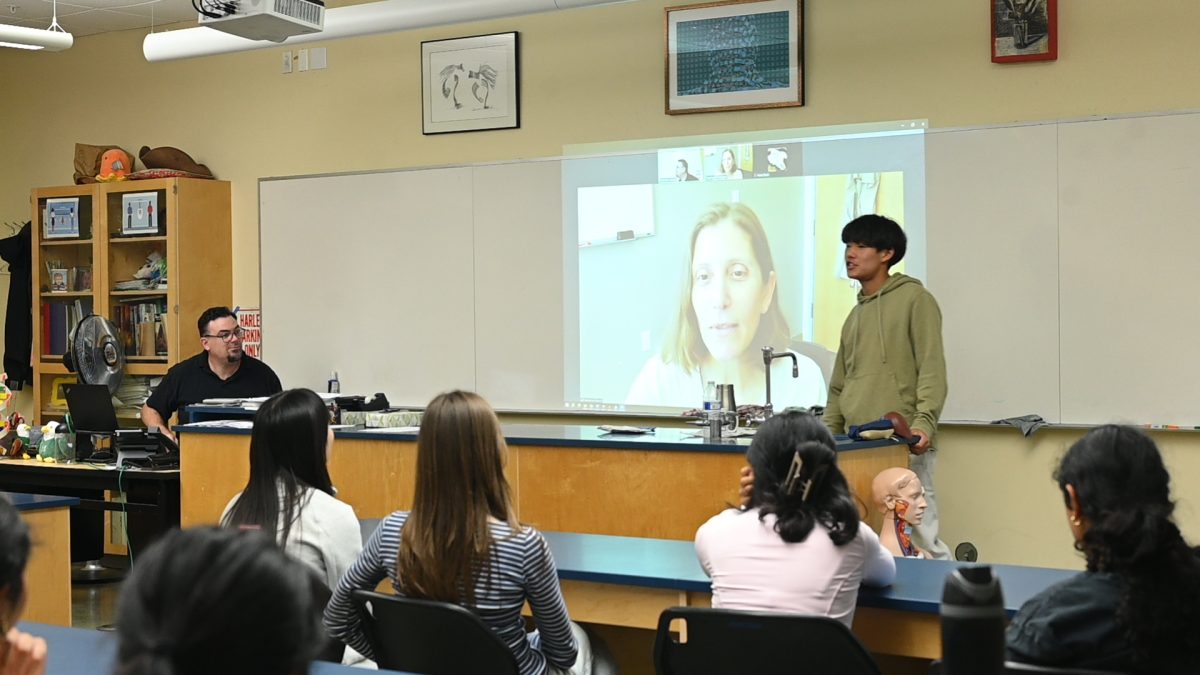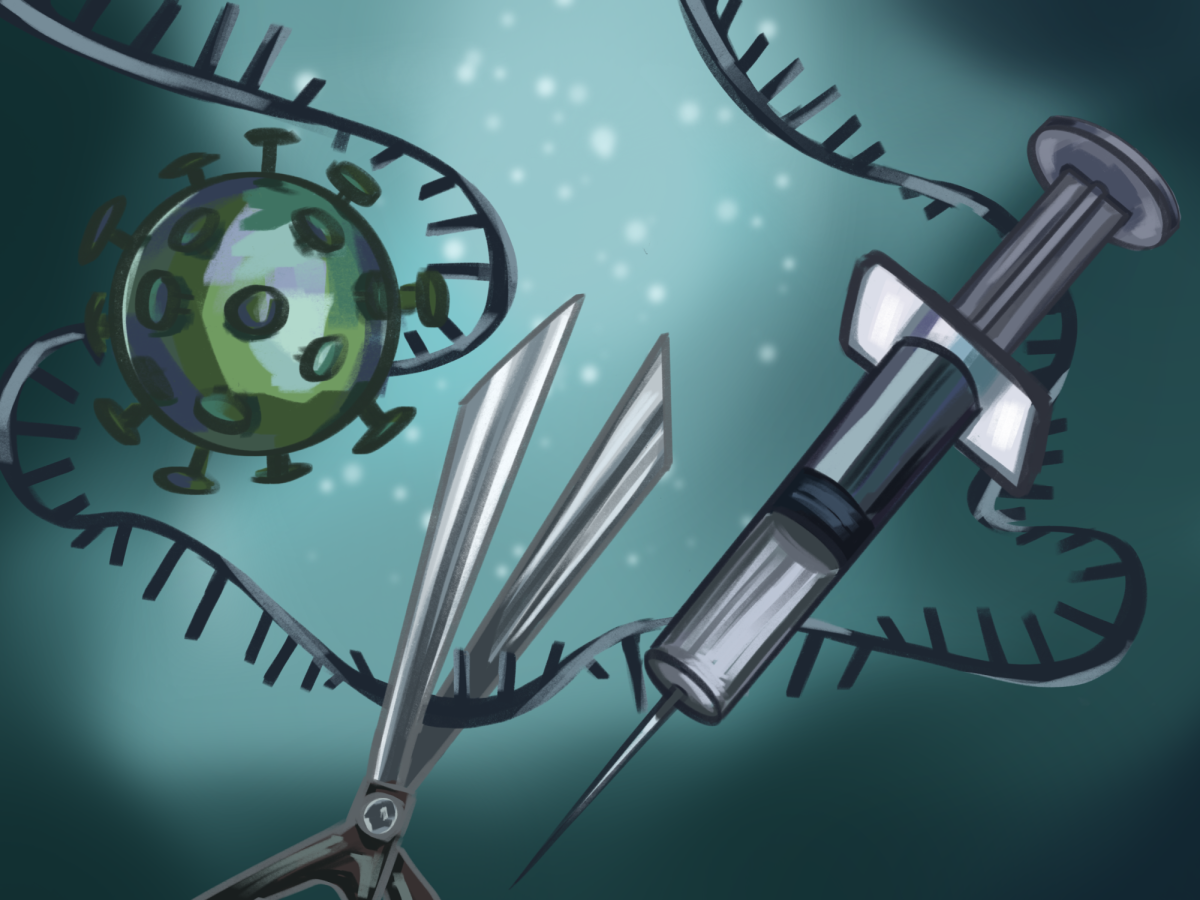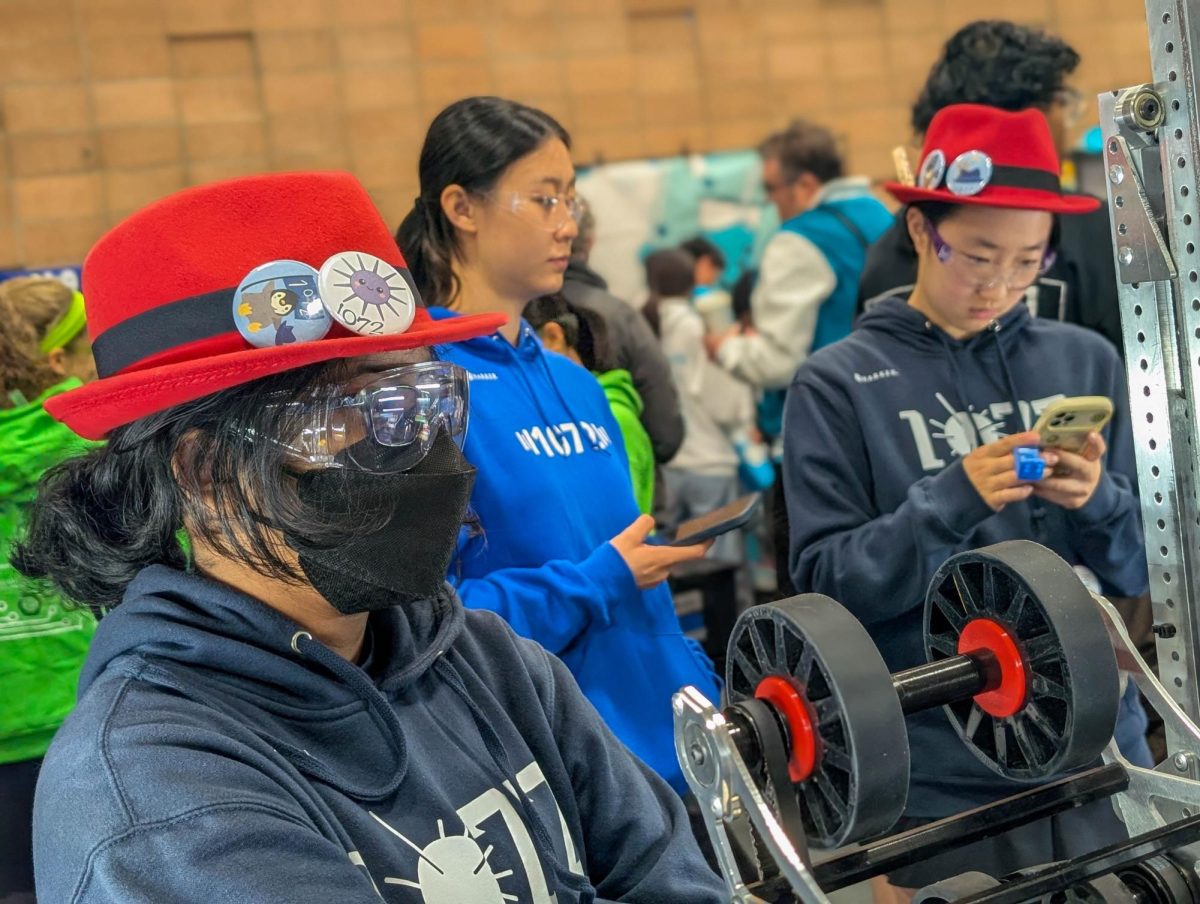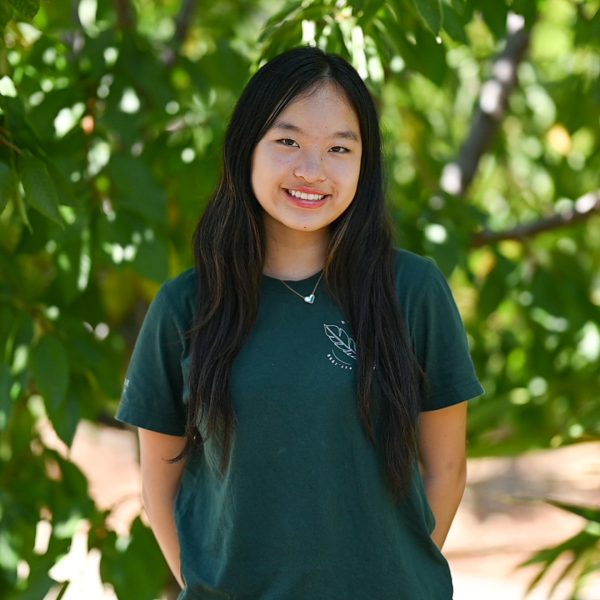Green Team invited Harker alum William Chen ‘03 to present on sustainable farming on Monday. Chen is the facility and production coordinator at Stanford’s O’Donohue Educational Farm and has previously worked with several other farms across California.
Chen began by briefly introducing his background and work on the Stanford educational farm, which contains crops ranging from vegetables and fruits to herbs and flowers. He spoke about a flower arranging service that he started with one of his co-workers to grow various species of flowers and provide bouquets to events at the Stanford campus. Chen aims to teach people how to start their own gardens and guide them on the methods of organic farming, such as composting.
In the second half of the talk, Chen discussed the dangers of herbicides and pesticides as well as genetically modified organisms. Many common herbicides and pesticides are toxic to both plants and humans. The use of these chemicals in agriculture directly affects the lives of everyday people, as herbicides and pesticides leave residues in the soil and the air. Furthermore, research shows that the chemicals can also cause cancer.
“It’s crazy to think that we all probably have that chemical to some degree, and if not you, your parents,” Chen said. “I’m here to change that.”
Nonetheless, large agricultural corporations today still utilize a variety of chemicals to reduce the chances of crop failure and improve their yield. Chen explained how Monsanto, the company behind the popular herbicide brand RoundUp, which is now a subsidiary of Bayer, donates millions of dollars per year to research corn and soybean genetics in an effort to modify the crops to accept toxic pesticides.
Chen believes that eating organic foods over GMO foods can make all the difference in health and taste. He recalls the rich flavor of a fresh, organic tomato compared to the bland taste of the processed version.
“Large-scale farming fed us and grew the population, but we’re also unhealthy and have garbage food,” Chen said. “I didn’t know what a tomato tasted like until I started farming. I originally thought McDonald’s and Burger King tomatoes were tomatoes, but that’s some watery fruit that they put inside some bread as cheaply as possible. If you think about the power and reach that these fast food chains have, it’s insane.”
To conclude his talk, Chen highlighted the importance of supporting sustainable farming, which can be done by buying local over imported produce. Event attendee Rajas Apte (11) also believes that everyone should buy locally, especially in California, where there are many farms.
“Be conscious of where you get your produce from,” Rajas said. “There are so many resources around us. There are farms everywhere, and even in the Santa Cruz area, there’s been a lot more popping up. We have a lot of local growers that don’t really get a lot of attention.”
Ultimately, advocating for change and educating others are crucial ways to promote healthy farming practices. Whether it’s engaging with local farmers or raising awareness about organic produce, everyone can contribute to a more sustainable future in farming, especially the younger generation.
Given the current focus on climate issues and the diverse career opportunities available, Green Team adviser and upper school Spanish teacher Diana Moss encourages students to consider a career related to agriculture.
“It’s interesting for Harker students to hear from professionals who have left Harker [and] graduate thinking they were going to do a traditional thing, and then somehow life sends them in a more non-traditional path,” Moss said. “I’m interested to see if maybe there [are students] who would consider, ‘I’m not going to go into engineering, I’m going to look into how I can support efforts to promote more sustainable actions in my career choices.’”


















![“[Building nerf blasters] became this outlet of creativity for me that hasn't been matched by anything else. The process [of] making a build complete to your desire is such a painstakingly difficult process, but I've had to learn from [the skills needed from] soldering to proper painting. There's so many different options for everything, if you think about it, it exists. The best part is [that] if it doesn't exist, you can build it yourself," Ishaan Parate said.](https://harkeraquila.com/wp-content/uploads/2022/08/DSC_8149-900x604.jpg)




![“When I came into high school, I was ready to be a follower. But DECA was a game changer for me. It helped me overcome my fear of public speaking, and it's played such a major role in who I've become today. To be able to successfully lead a chapter of 150 students, an officer team and be one of the upperclassmen I once really admired is something I'm [really] proud of,” Anvitha Tummala ('21) said.](https://harkeraquila.com/wp-content/uploads/2021/07/Screen-Shot-2021-07-25-at-9.50.05-AM-900x594.png)







![“I think getting up in the morning and having a sense of purpose [is exciting]. I think without a certain amount of drive, life is kind of obsolete and mundane, and I think having that every single day is what makes each day unique and kind of makes life exciting,” Neymika Jain (12) said.](https://harkeraquila.com/wp-content/uploads/2017/06/Screen-Shot-2017-06-03-at-4.54.16-PM.png)








![“My slogan is ‘slow feet, don’t eat, and I’m hungry.’ You need to run fast to get where you are–you aren't going to get those championships if you aren't fast,” Angel Cervantes (12) said. “I want to do well in school on my tests and in track and win championships for my team. I live by that, [and] I can do that anywhere: in the classroom or on the field.”](https://harkeraquila.com/wp-content/uploads/2018/06/DSC5146-900x601.jpg)
![“[Volleyball has] taught me how to fall correctly, and another thing it taught is that you don’t have to be the best at something to be good at it. If you just hit the ball in a smart way, then it still scores points and you’re good at it. You could be a background player and still make a much bigger impact on the team than you would think,” Anya Gert (’20) said.](https://harkeraquila.com/wp-content/uploads/2020/06/AnnaGert_JinTuan_HoHPhotoEdited-600x900.jpeg)

![“I'm not nearly there yet, but [my confidence has] definitely been getting better since I was pretty shy and timid coming into Harker my freshman year. I know that there's a lot of people that are really confident in what they do, and I really admire them. Everyone's so driven and that has really pushed me to kind of try to find my own place in high school and be more confident,” Alyssa Huang (’20) said.](https://harkeraquila.com/wp-content/uploads/2020/06/AlyssaHuang_EmilyChen_HoHPhoto-900x749.jpeg)



